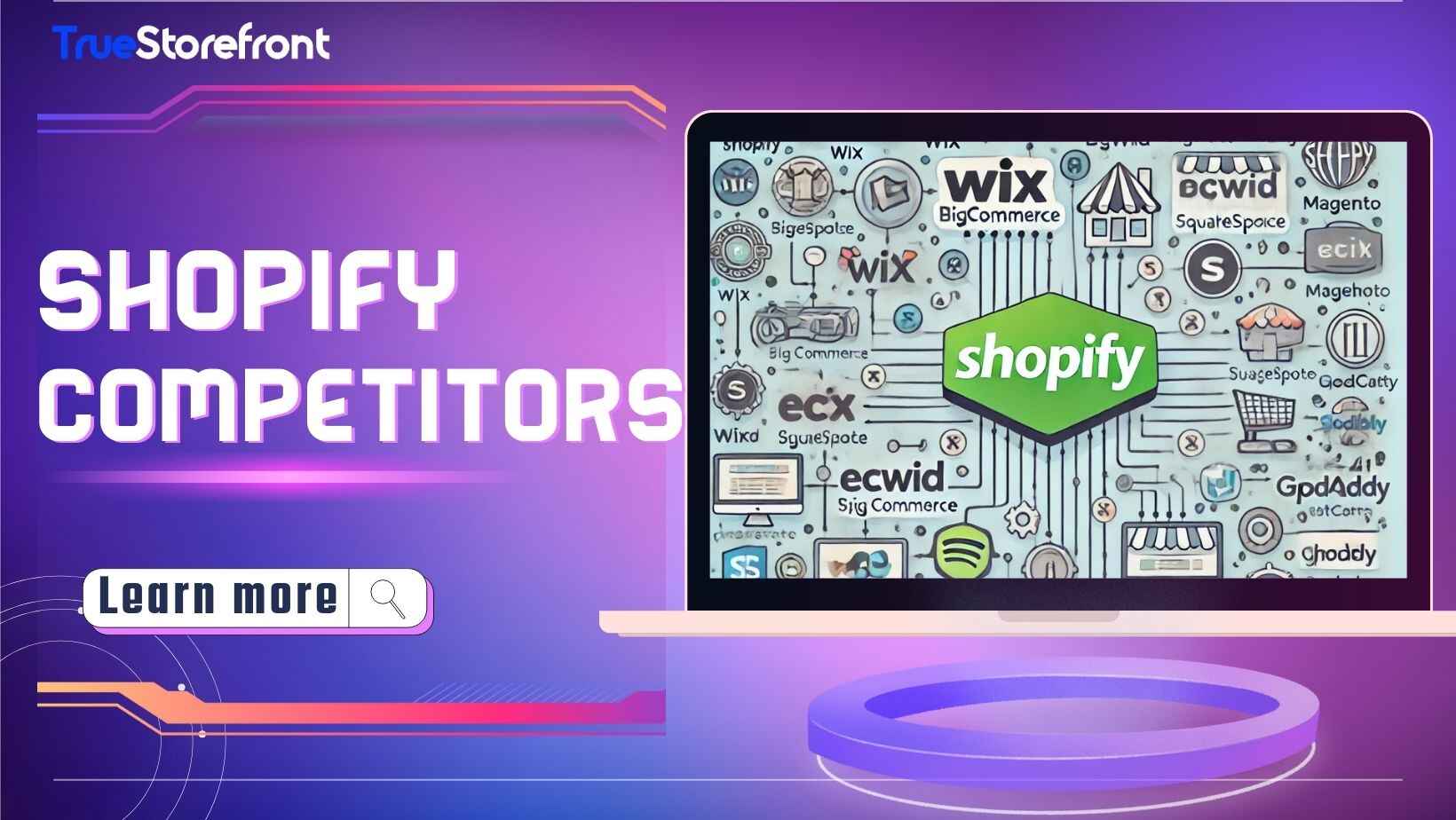I. Reasons To Look For Shopify Alternatives
While Shopify is a great platform, it might not be the perfect fit for every business. Here are some reasons to explore other options:
-
Cost: Shopify's pricing plans can escalate quickly, especially for high-volume stores.
-
Customization: Some businesses require more flexibility and control over their online store's design and functionality than Shopify offers.
-
Scalability: If you anticipate rapid growth, you might need a platform that can handle increased traffic and sales without limitations.
-
Specific Features: Your business might have unique requirements that aren't fully met by Shopify.
II. Shopify Competitors: The Comparison
Here’s a comparison table of Shopify alternatives:
III. Top 10 Best Shopify competitors
3.1. Wix
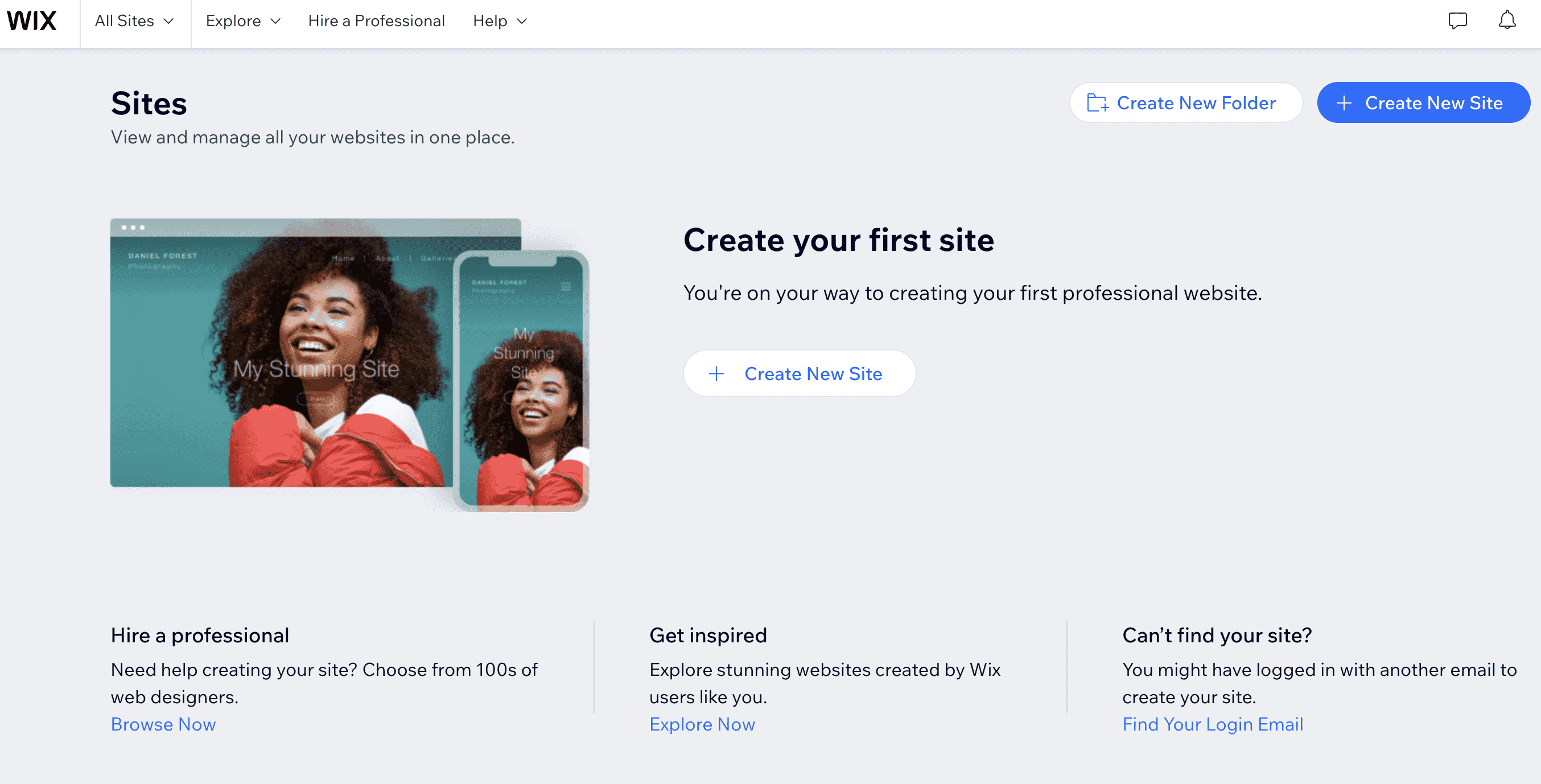
Wix started as a website builder but has evolved into a significant e-commerce platform. Its user-friendly drag-and-drop interface makes it a popular choice for those who want a visually appealing store without extensive technical knowledge.
Key Features:
-
Drag-and-drop website builder
-
Hundreds of customizable templates
-
Integrated e-commerce tools
-
App market for additional functionality
Strengths:
-
Ease of Use: Wix’s intuitive interface makes it easy for anyone to build a store without coding knowledge.
-
Design Flexibility: A wide range of templates and customization options allow for a highly personalized online store.
-
Affordable Pricing: Wix offers competitive pricing, including a free plan with limited features.
Weaknesses:
-
Limited Scalability: Not ideal for large businesses or those planning to scale significantly.
-
Basic E-commerce Tools: While sufficient for small stores, Wix’s e-commerce features are less advanced compared to Shopify.
Wix is incredibly user-friendly, with an intuitive drag-and-drop builder and a wide range of design options. However, it’s not as scalable as Shopify, making it better suited for smaller stores or those just starting out.
3.2. Ecwid
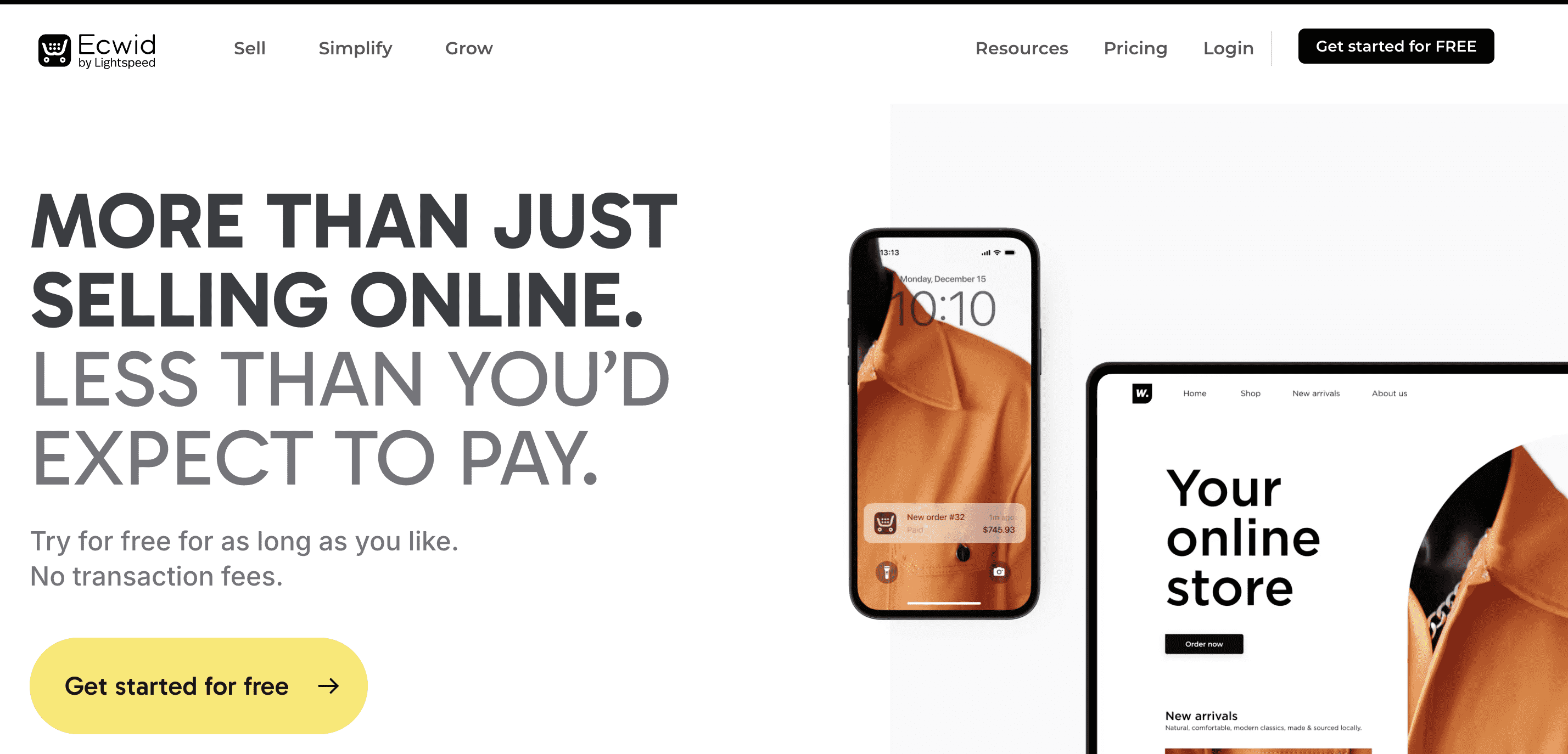
Ecwid stands out for its ability to integrate with existing websites, turning any site into an e-commerce store. It offers a simple solution for businesses already established online who want to add e-commerce functionality.
Key Features:
-
Easily integrates with existing websites and social media
-
Multichannel selling capabilities
-
Free plan available with basic features
-
Supports multiple payment gateways
Strengths:
-
Seamless Integration: Ecwid can be added to any website, blog, or social media platform, making it versatile.
-
Affordable: The free plan is ideal for small businesses or startups looking to test e-commerce.
-
Multichannel Selling: Sell across various platforms, including Facebook, Instagram, and marketplaces like Amazon.
Weaknesses:
-
Limited Features on Free Plan: To unlock more advanced features, you'll need to upgrade to a paid plan.
-
Less Customizable: Ecwid doesn’t offer the same level of customization as Shopify, especially for larger stores.
Ecwid is a great option for integrating e-commerce into an existing website, especially with its free plan. However, it lacks the full-fledged features of Shopify, making it less ideal for businesses looking to scale.
3.3. BigCommerce

BigCommerce is known for its scalability and robust feature set, making it a popular choice for businesses looking to grow. It offers a comprehensive suite of tools for managing complex e-commerce operations.
Key Features:
-
No transaction fees
-
Built-in SEO and marketing tools
-
Scalable architecture for growing businesses
-
Multi-currency support and advanced analytics
Strengths:
-
Scalability: BigCommerce is designed for growth, making it ideal for businesses planning to expand.
-
Advanced Features: Offers a wide range of built-in tools, eliminating the need for many third-party apps.
-
No Transaction Fees: Unlike Shopify, BigCommerce doesn’t charge transaction fees, which can be a significant cost-saving for high-volume sellers.
Weaknesses:
-
Complexity: The platform’s extensive features can be overwhelming for beginners.
-
Higher Pricing: While it offers a lot, BigCommerce’s plans are generally more expensive than Shopify’s.
BigCommerce offers advanced features and scalability with transaction fees, making it a strong contender against Shopify, especially for growing businesses. It’s more complex to use, but for larger operations, it might offer better long-term value.
3.4. Magento (Adobe Commerce)
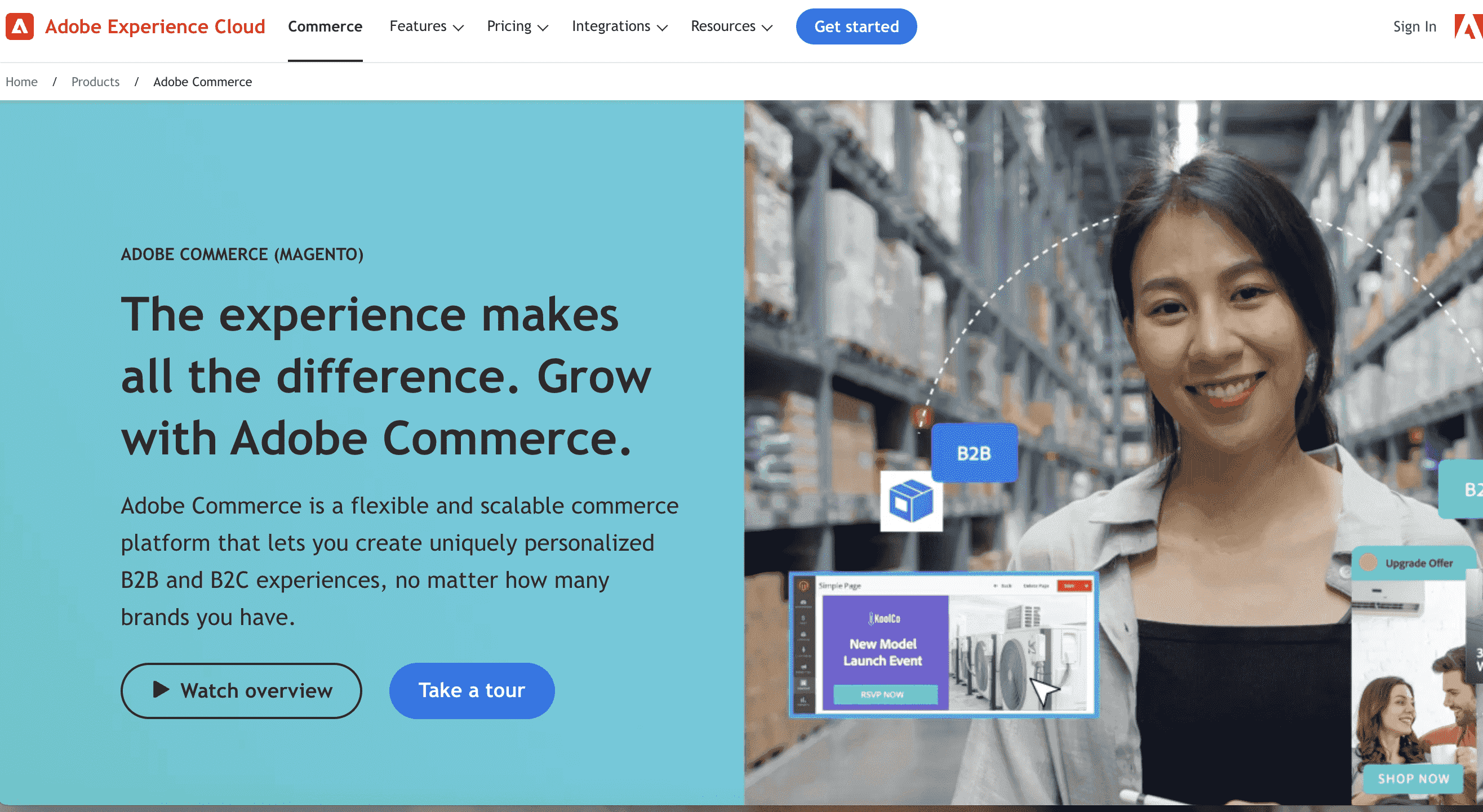
Magento, now part of Adobe Commerce, is a powerful and highly customizable platform. It’s known for its flexibility and is favored by businesses that require a tailored e-commerce solution.
Key Features:
-
Open-source platform with full customization
-
Extensive marketplace for extensions
-
Supports large-scale, complex operations
-
Multi-store and multi-language support
Strengths:
-
Unmatched Customization: Magento allows for complete control over every aspect of your store, making it ideal for complex needs.
-
Scalable: Suitable for large enterprises with high traffic and extensive product catalogs.
-
Community and Extensions: A large community and thousands of extensions provide ample opportunities to enhance your store.
Weaknesses:
-
Technical Expertise Required: Magento’s flexibility comes at the cost of complexity, requiring significant technical skills.
-
Cost: While the open-source version is free, hosting, development, and maintenance costs can be high.
Magento is a powerful, highly customizable platform best suited for large businesses. While it offers more flexibility than Shopify, it requires significant technical expertise and resources, making it less accessible for smaller operations.
3.5. Squarespace
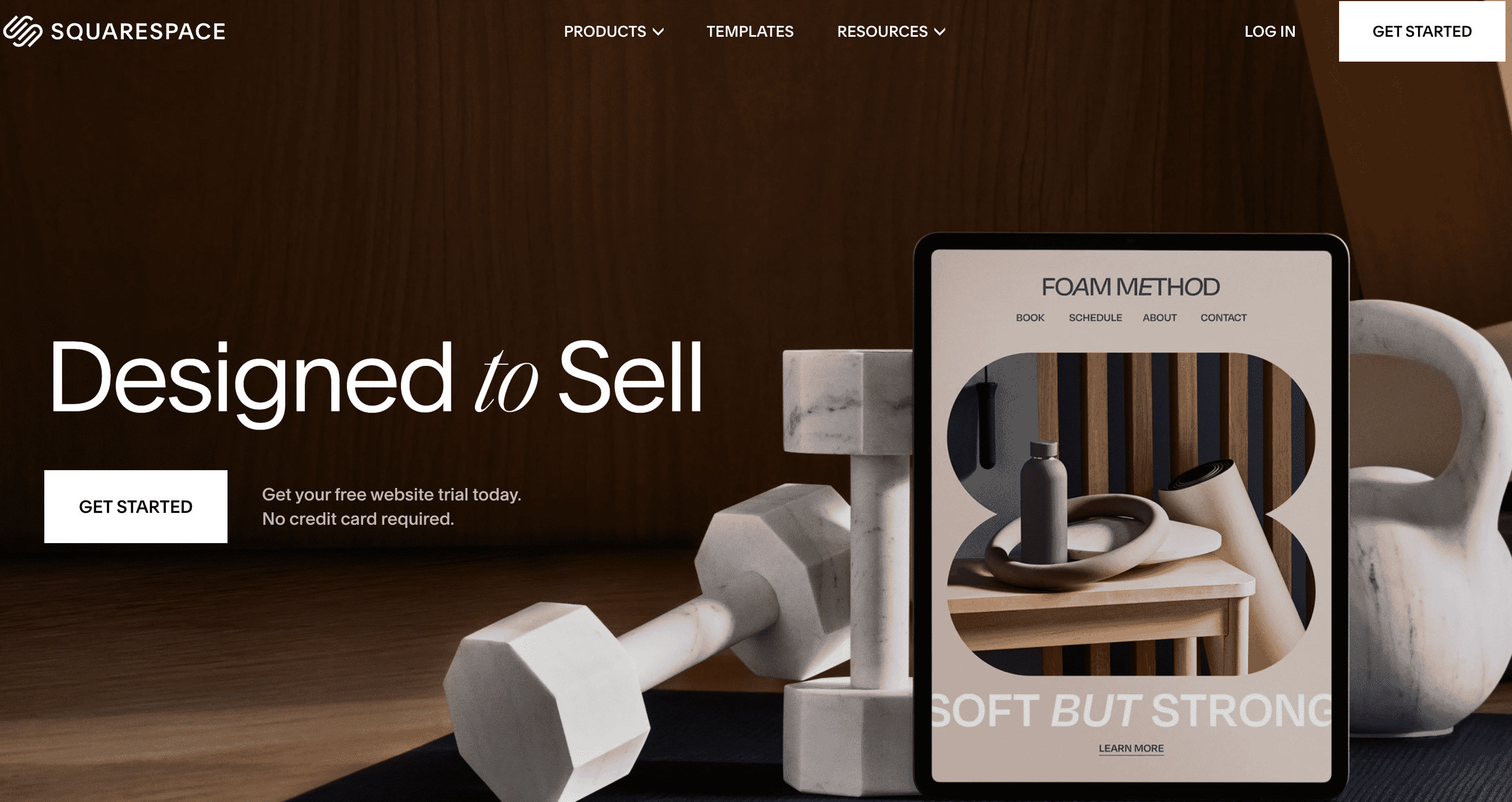
Squarespace is celebrated for its stunning design templates and ease of use. While it started as a website builder, it now offers e-commerce functionality for those seeking an elegant, streamlined shopping experience.
Key Features:
-
Beautiful, designer-quality templates
-
Integrated blogging and e-commerce tools
-
All-in-one platform with hosting included
-
User-friendly interface
Strengths:
-
Stunning Designs: Squarespace offers some of the most visually appealing templates, perfect for creatives and design-focused businesses.
-
Ease of Use: The platform is user-friendly, with a simple drag-and-drop editor.
-
All-in-One Solution: Hosting, design, and e-commerce tools are all integrated, simplifying the process.
Weaknesses:
-
Limited E-commerce Features: While great for small stores, Squarespace’s e-commerce tools are less advanced compared to Shopify.
-
Transaction Fees: Lower-tier plans include transaction fees, which can increase costs.
Squarespace eccles in design and ease of use, making it ideal for creatives. However, its e-commerce capabilities are more limited compared to Shopify, making it better for small to medium-sized businesses with a focus on aesthetics.
3.6. Shift4 Shop

Shift4Shop (formerly 3dcart) is known for its comprehensive e-commerce features and built-in tools. It caters to a range of businesses, from small startups to large enterprises.
Key Features:
-
Free plan for U.S. businesses
-
Built-in SEO, marketing, and customer management tools
-
No transaction fees
-
Flexible payment options
Strengths:
-
Cost-Effective: Shift4 Shop offers a free plan with no transaction fees for U.S.-based businesses, making it highly appealing for budget-Weaknessescious users.
-
Comprehensive Tools: Includes a range of built-in e-commerce features, reducing the need for third-party apps.
-
Customization: Offers robust customization options to tailor your store to your specific needs.
Weaknesses:
-
Limited Support Outside the U.S.: The free plan and some features are primarily geared towards U.S. businesses.
-
Complexity: The platform can be challenging to navigate, especially for those new to e-commerce.
Shift4 Shop's free plan for U.S. businesses is appealing, but the platform doesn’t offer the same level of polish or features as Shopify. It’s a solid budget option but may not provide the best user experience.
3.7. Weebly
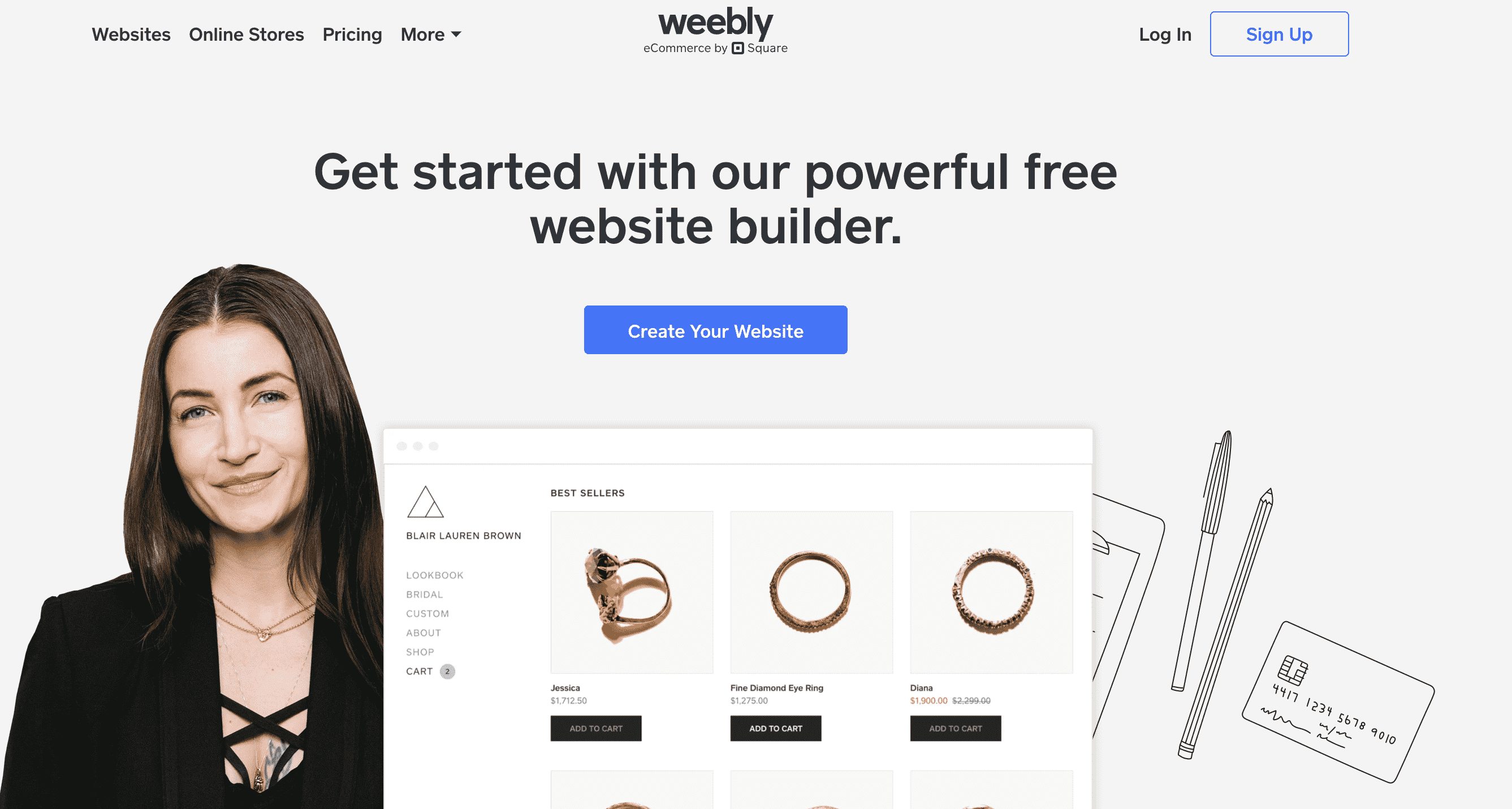
Weebly, now part of Square, offers a simple and straightforward approach to e-commerce. It’s well-suited for small businesses and individuals who need a hassle-free setup.
Key Features:
-
Drag-and-drop website builder with ecommerce functionality
-
Free plan available
-
Integrated marketing tools
-
Simple, user-friendly interface
Strengths:
-
Ease of Use: Weebly’s drag-and-drop editor is easy to use, even for those with no technical experience.
-
Affordable: Weebly offers a free plan and competitively priced paid plans, making it accessible for small businesses.
-
All-in-One Solution: Hosting, domain registration, and e-commerce tools are all included.
Weaknesses:
-
Basic E-commerce Features: Weebly’s e-commerce tools are more limited, making it less suitable for larger or more complex stores.
-
Customization Limits: Compared to Shopify, Weebly offers fewer options for customization and scalability.
Weebly is easy to use and affordable, making it a good choice for small businesses or personal projects. However, it lacks the advanced features and scalability of Shopify, making it less suitable for growing businesses.
3.8. OpenCart
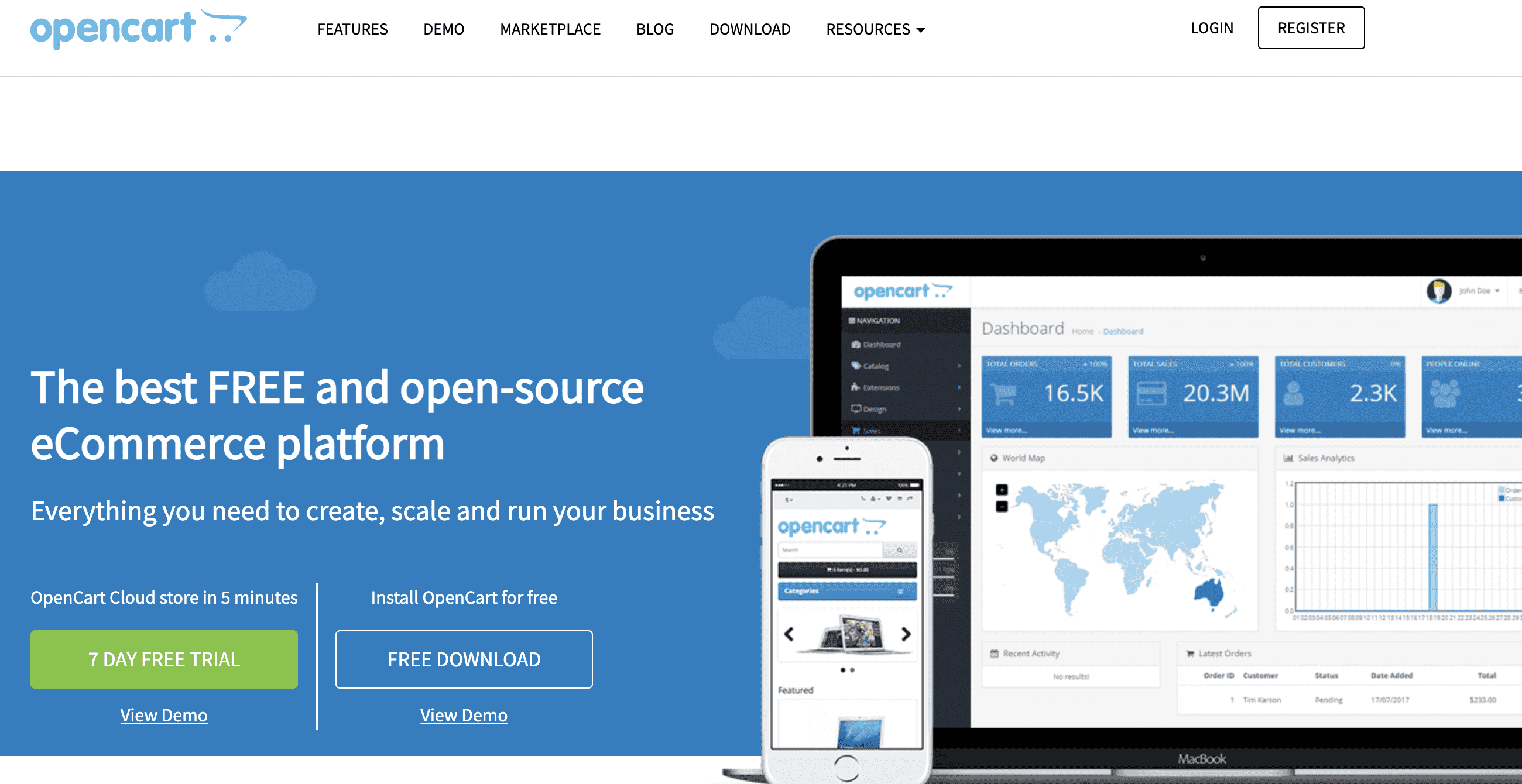
OpenCart is an open-source e-commerce platform that offers a high degree of flexibility and customization. It’s a good option for businesses with technical resources or those looking to build a unique store.
Key Features:
-
Free, open-source platform
-
Extensive range of extensions and themes
-
Multi-store and multi-language support
-
Full control over hosting and customization
Strengths:
-
Cost-Effective: OpenCart is free to use, with extensive customization options available through extensions.
-
Control: As a self-hosted platform, you have full control over your store’s setup, security, and customization.
-
Community Support: A large community and marketplace offer plenty of resources for customization and troubleshooting.
Weaknesses:
-
Technical Knowledge Required: OpenCart requires technical skills for setup, customization, and maintenance.
-
No Official Support: While the community is strong, there’s no official support, which can be challenging for those without technical expertise.
OpenCart is a strong choice for businesses needing a customizable, self-hosted solution. However, it requires technical expertise, and without the support ecosystem of Shopify, it’s less user-friendly for those without coding skills.
3.9. GoDaddy
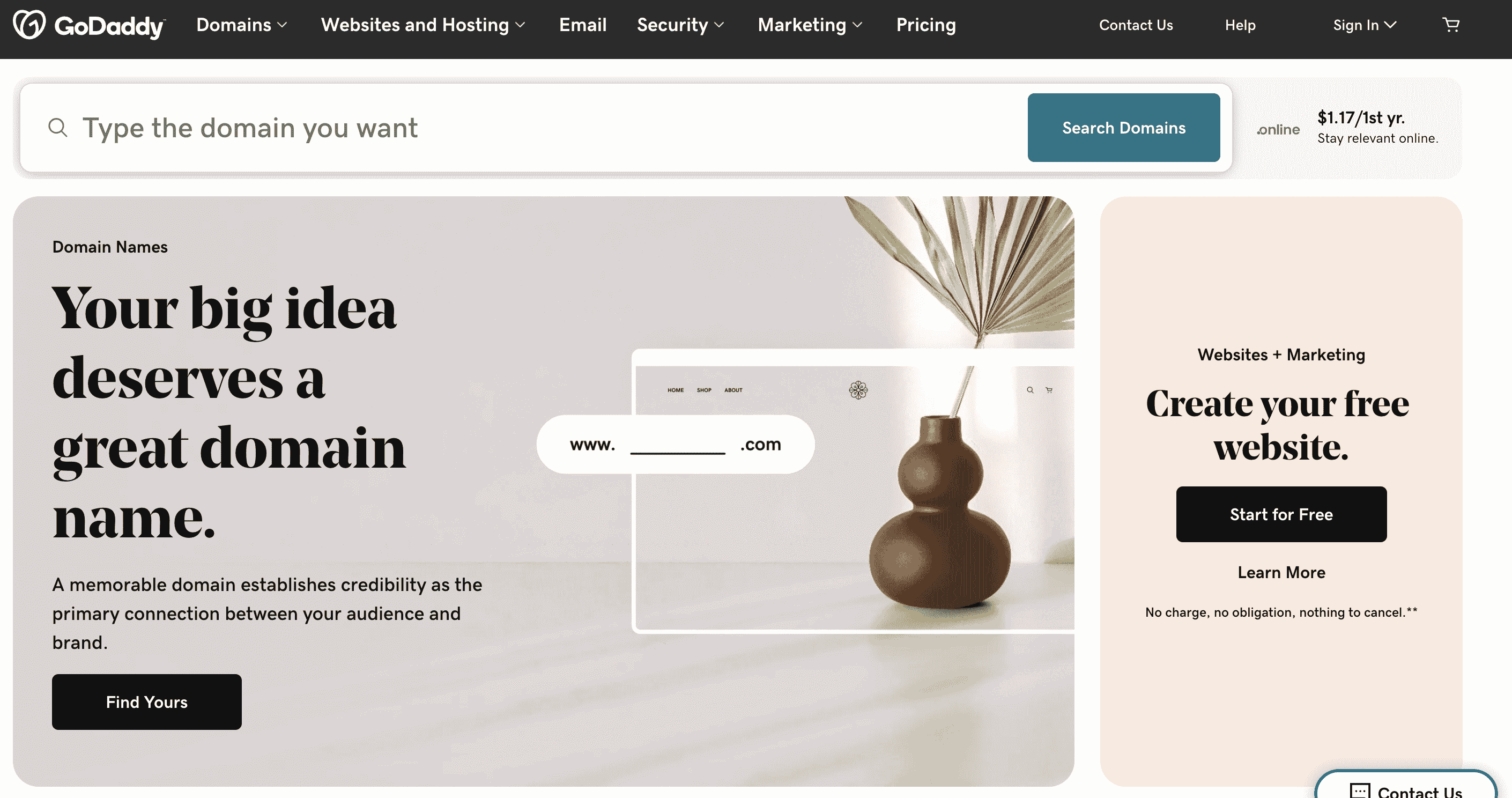
GoDaddy, primarily known for domain registration, also offers website building and e-commerce solutions. Its platform is geared towards users seeking an integrated approach to managing their online presence.
Key Features:
-
Simple, quick setup for e-commerce
-
Integrated domain registration and hosting
-
Built-in marketing tools
-
Affordable pricing
Strengths:
-
Ease of Use: GoDaddy offers an easy-to-use platform, perfect for beginners and small businesses.
-
All-in-One Solution: Domain registration, hosting, and website building tools are all integrated.
-
Affordable: Competitively priced plans make GoDaddy a budget-friendly option.
Weaknesses:
-
Limited E-commerce Features: GoDaddy’s e-commerce tools are basic, limiting its suitability for larger or more complex stores.
-
Customization Weaknesses Traits: The platform offers fewer options for customization compared to Shopify.
-
GoDaddy offers a straightforward, easy-to-use e-commerce solution, perfect for beginners. However, it’s less powerful and flexible than Shopify, making it better suited for very small businesses or those needing a quick, simple setup.
3.10. WooCommerce
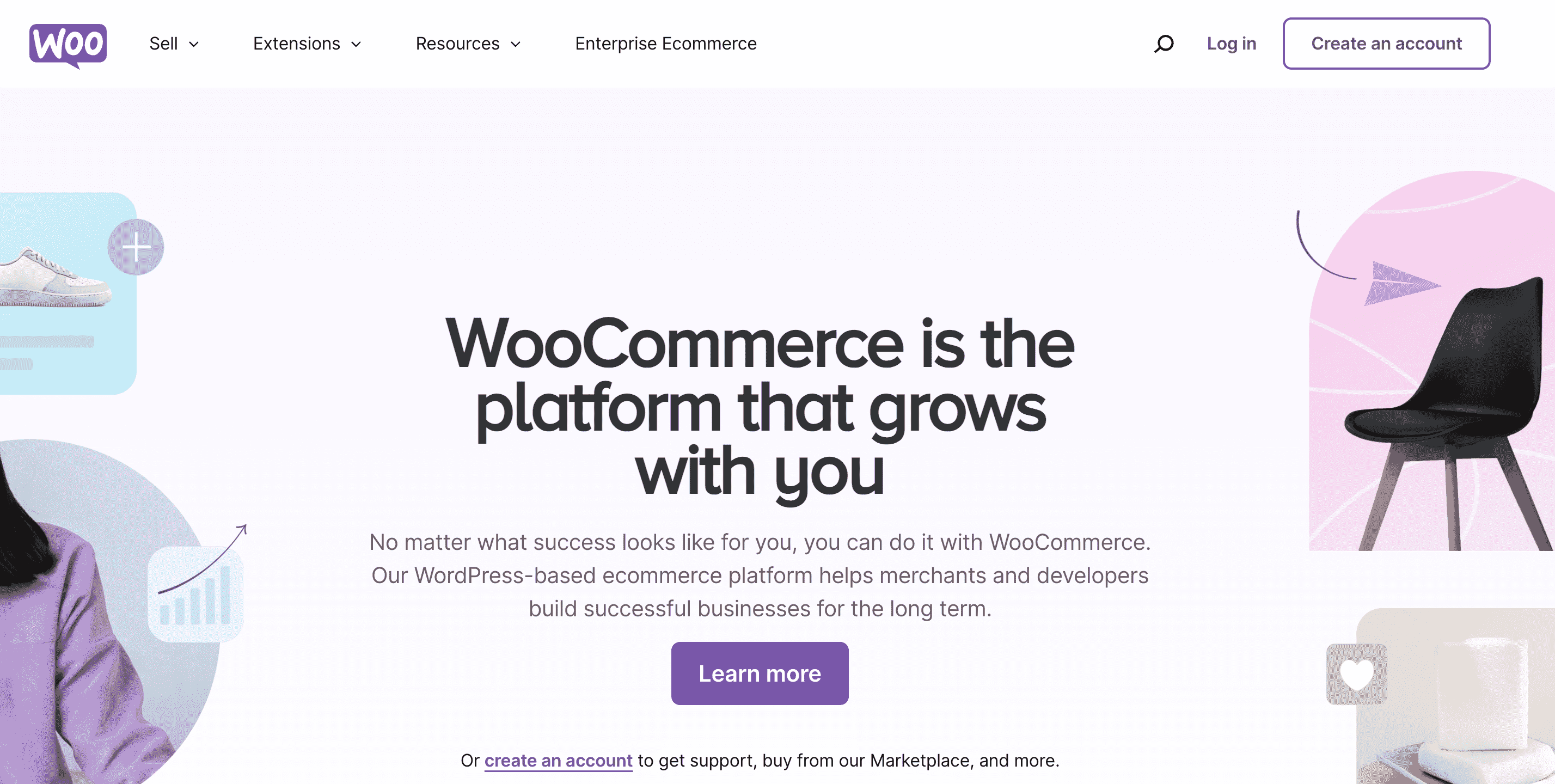
WooCommerce is a WordPress plugin that turns a standard WordPress site into a fully functional ecommerce store. It’s highly customizable and integrates seamlessly with WordPress.
Key Features:
-
Open-source WordPress plugin
-
Highly customizable
-
Extensive range of plugins and themes
Strengths:
-
Flexibility: Offers extensive customization through plugins and themes.
-
Integration with WordPress: Seamlessly integrates with WordPress, benefiting from its ecosystem.
-
Cost-Effective: The plugin itself is free, though additional costs may arise from hosting and extensions.
Weaknesses:
-
Technical Expertise Required: Requires knowledge of WordPress and web development for optimal use.
-
Maintenance: Regular updates and maintenance needed to ensure security and functionality.
WooCommerce, built on WordPress, is highly customizable and ideal for content-driven sites. It offers more flexibility than Shopify but requires more technical knowledge and maintenance.
IV. How To Choose the Best Shopify Alternative
4.1. Assess Your Business Needs
-
Size and Scale: Consider the size of your business and your growth plans. Are you a small startup, a mid-sized business, or a large enterprise? Platforms like WooCommerce and BigCommerce are great for scaling, while Wix and Weebly might be better for smaller operations.
-
Product Range: If you have a large inventory with complex product variations, a robust platform like Magento or BigCommerce might be necessary. For smaller inventories, Squarespace or Ecwid could suffice.
4.2. Determine Your Budget
-
Initial Costs: Evaluate your budget for setting up the store. Some platforms like WooCommerce and OpenCart are free to start, while others like BigCommerce and Squarespace offer trials but have ongoing costs.
-
Ongoing Fees: Consider transaction fees, subscription costs, and the need for paid extensions or apps. For example, Shift4Shop offers a plan with no transaction fees, making it a cost-effective option.
4.3. Consider Technical Expertise
-
Ease of Use: Platforms like Wix and GoDaddy are user-friendly, requiring little to no coding knowledge, making them ideal for beginners.
-
Customization: If you need a highly customizable store, consider open-source platforms like Magento or OpenCart, which allow for deep customization but require technical expertise or developer assistance.
4.4. Evaluate Design and Customization Options
-
Design Flexibility: If your brand’s aesthetics are crucial, platforms like Squarespace offer beautiful, professionally designed templates. Wix also provides extensive design flexibility with its drag-and-drop interface.
-
Custom Features: For unique e-commerce features, WooCommerce and Magento allow for extensive customization through plugins and extensions.
4.5. Test with Free plans or trials.
- Try Before You Commit: Many Platforms offers free plans or trials (Like Wix, Squarespace, and Weebly). Take advantage of these to test the platform’s functionally, ease of use, and suitability for your business.
4.6. Consider Long-Term Growth and Scalability
- Future-Proof Your Choice: Choose a platform that can grow with your business. BigCommerce and Magento are excellent for businesses planning to scale, offering advanced features and enterprise-level capabilities.
V. Is Shopify still the best ecommerce platform?
User-Friendly Interface:
- Shopify is known for its intuitive, user-friendly interface. Even those with little to no technical experience can set up a fully functional online store quickly. The drag-and-drop builder and easy customization options make it accessible for beginners and small
Comprehensive App Ecosystem:
- Shopify’s App Store is vast, offering thousands of apps and plugins that can extend your store’s functionality. Whether you need advanced marketing tools, inventory management, or custom shipping options, there’s likely an app for it.
Scalability:
- Shopify caters to businesses of all sizes, from startups to large enterprises. With Shopify Plus, the platform’s enterprise-level solution, businesses can scale without needing to switch platforms. The ability to handle high traffic, large inventories, and multiple sales channels makes Shopify a strong contender for growing businesses.
Reliable Hosting and Security:
- Shopify provides hosting as part of its service, ensuring that your site is fast, secure, and always available. Shopify takes care of PCI compliance, SSL certificates, and security updates, giving you peace of mind.
Multi-Channel Selling:
- Shopify excels at multi-channel selling, allowing you to manage sales across various platforms, including Amazon, eBay, Facebook, Instagram, and more. This feature is particularly beneficial for businesses looking to expand their reach.
24/7 Customer Support:
- Shopify offers robust customer support, available 24/7 via live chat, phone, and email. The extensive knowledge base, community forums, and expert support help resolve issues quickly.
Shopify remains one of the best e-commerce platforms due to its ease of use, comprehensive app ecosystem, scalability, and reliable customer support. However, whether it is the best choice for you depends on your specific business needs. If you need a platform that is easy to use, scalable, and supports multi-channel selling, Shopify is an excellent option. But if you require deep customization, have a limited budget, or need advanced content management, you might want to consider other platforms like WooCommerce, BigCommerce, or Magento.
VI. Conclusion
While Shopify is a fantastic platform with a lot to offer, it's essential to consider your business's unique needs when choosing an e-commerce solution. Whether you prioritize design flexibility, scalability, or affordability, there's likely a Shopify competitor that fits the bill. By exploring these alternatives, you can find the platform that aligns best with your business goals and growth trajectory.
This overview of Shopify competitors should give you a solid starting point in your search for the ideal e-commerce platform. Each option has its strengths and weaknesses, so take the time to assess which features are most critical for your online store. Whether you're just starting out or looking to scale, there's a platform out there that can help you achieve your e-commerce dreams.
Read more:
